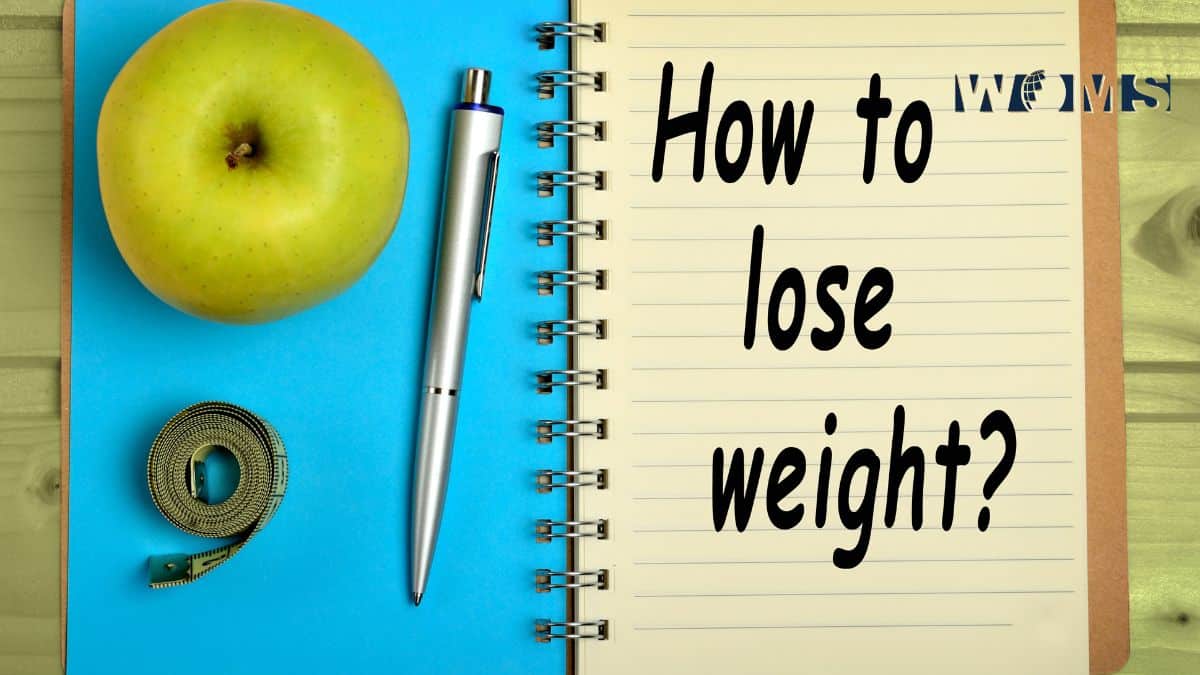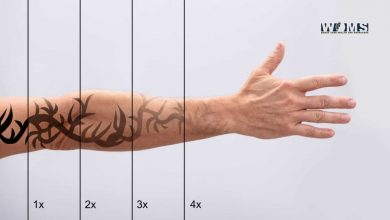How to Journal for Weight Loss

If you’re one of the millions who want to lose weight, you might have already heard about the importance of keeping a food journal.
But what if that’s not enough? What if you need more than just a list of meals and snacks to know what you’re putting into your body?
Well, there are other ways to use journaling for weight loss. Mindfulness can be part of your regular journaling practices to make them even more effective at helping with weight loss goals. If done well, it could help you achieve your goal.
If you’re interested in how to journal for weight loss – this guide is a game changer. Shifting your addictive patterns like overeating or not exercising is emotional, physical, and spiritual. Sure, you can work out 5 days a week and incorporate things like Intermittent Fasting (IF), but sustaining a lifestyle change over the long term takes mental re-wiring.
This is where journaling for weight loss and a daily mindfulness practice will help. This guide will show you how to incorporate both into your daily life.
How do you feel?
Just like tracking your weight, you can track how you feel. The reason for doing this is that your emotional state can be a motivator for what to do. For example, if you’re feeling stressed out or exhausted, it may be the best time to take a break from exercise in favor of some relaxation.
On the other hand, if your energy levels are high and your mood is positive, it might be a good idea to kick up your workout routine with some extra cardio!
When journaling for weight loss, it’s good to practice mindfulness. It could help you find the root cause of certain habits. A study by Harvard Professor of psychology Ronald Siegel’s study proves this. “Very few of us eat solely based on hunger cues” (Harvard health journal). “We also eat to soothe anxiety, sadness, or irritation.”
Since emotional eating is an issue that many of us might unknowingly face, using mindfulness and meditation can help keep us in control of our reactions to such urges.
Practicing mindfulness and meditation can help us observe our emotional state.
What is your Emotional State?
Make a list of the emotions you experience before eating. You may be surprised to find out what is causing you to eat too much or too little. You can use this list when you need help identifying triggers for each emotion.
Evaluate your emotional state before eating. If you’re feeling anxious, sad, or angry, write about how it makes you feel physically and emotionally. For example: “My throat is dry, and my heart feels heavy.” Write down other physical sensations at that moment perhaps fatigue or pain in your body?
Next, write about how these feelings affect your thoughts: “My thoughts are racing, and I’m worried about everything I have to do today.” Finally, write down any actions that help alleviate those feelings (or make them more bearable). That might include listening to music or taking a walk around the block. Doing so allows us time alone without being distracted by other activities outside our control (like work or studies).
Monitor Your Sleep Habits
When journaling for weight loss, you could also write down what time you sleep and how long. Monitoring your sleep habits can help you improve them. For example, if you wake up groggy and tired more often than not, it’s clear that this isn’t a healthy routine for your body. If you have trouble sleeping at night or staying asleep, there are several things you can do to improve the quality of your sleep. For example:
Avoid caffeine late in the day. Caffeine acts as a stimulant and will keep you awake for hours after drinking it (even though it might make you feel drowsy). It’s best not to drink caffeinated beverages after lunchtime on weekdays or earlier than noon on weekends.
Minimize distractions before bedtime by turning off televisions and phones. Try dimming lights an hour before going to bed.
Exercise regularly during the day but not right before bedtime! Exercise promotes better circulation throughout the body and increases endorphins (natural chemicals in our brains). These two factors help us relax, so we’re better able to fall asleep when we need to be resting. Instead of thinking about all our responsibilities throughout the day and possible solutions for those problems too!
Examine Your Triggers
Journaling can also help you to identify triggers that might be contributing to your weight gain.
Triggers are events, thoughts, and feelings that cause a negative response. For example, when you feel stressed at work and then eat an entire bag of chips after coming home from work. Because you’re hungry and want something salty, stress triggers your craving for salty foods.
When examining our behaviors, we may see evidence or patterns. “When I get stressed at work, my cravings become stronger,” or “when I am bored, eating becomes an activity.” These patterns can help us pinpoint what causes us to eat more than we intended for us to stop.
In journaling for weight loss, you’ll be able to discover what makes you feel this way. Later if it happens again (as it inevitably will), then writing about it will remind you why this is happening. Next time instead of eating all those cookies, you could go outside for a walk instead. Or call up someone close who makes you happy.
Identify Problematic Behaviors
Food is not the enemy. It’s good to remember that you can still enjoy and celebrate it as a part of life. For some people, that means indulging in treats in moderation. For others, it might mean avoiding certain foods altogether (like sugar). Whatever your preferences are, be mindful of how you approach food. That ensures that your relationship with it remains healthy and balanced over time.
Self-awareness is necessary to get rid of bad habits. The Harvard health journal highlights that it’s easy to fall into a pattern of addiction due to a lack of it. You might want to avoid eating chocolate cake until you see it.
You have one slice, feel guilty and wind up eating half the cake! That’s because of “A desperate need to self-soothe.” You can’t avoid the foods you desire forever, so mindfulness can allow you to observe the craving. That will help you deal with the discomfort and feelings that lead to binge eating.
Remember: Food is a tool for good health. Not just physical health but also mental health, social health, and more!
There was a clinical trial to discover the effects of a mindful-based weight loss program on women (Katy Tapper, Lawrence Moore). The control condition study had 62 participants and consisted of 4 workshops. There was a decrease in BMI in some individuals due to reduced binge eating. The study was successful at bringing change and proving the powerful effects of mindfulness.
Practice mindfulness in your journaling
Mindfulness can help you stay focused on the present without worrying about the past or future.
When you’re mindful, you are simply noticing what is going on around you and in your mind. You don’t have to change anything or make any judgments about it—you observe it as it is right now. For example:
- “I’m sitting at my desk with a pen in my hand, writing this sentence.”
- “The wind outside is blowing hard, but there are no raindrops yet.”
- “It’s been several hours since breakfast, and my stomach still feels empty!”
The advantages of journaling for weight-loss
It’s a great way to keep track of your dietary intake and helps with sticking to goals. Journaling for weight loss will show you which foods help you and which exercises are best for your body type. Keeping track of your daily activities allows you to see how much time you exercise and rest.
That can help with weight loss because if someone does not get enough rest, they may be more likely to make poor food choices. If someone has an unhealthy lifestyle, they might have trouble losing weight since their bodies are not getting the proper nutrients or exercise needed for healthy living.
- Record how much you eat and drink
- Record how much you exercise
- Take note of your progress
- Write down how you feel
- If there’s something important to you, record it!
Record Your Meals and Exercise routines
Meal journaling for weight loss can be an integral part of your weight loss program. A food journal records what you eat and how you feel before and after eating. You can also record your workout routines, including your energy levels during the exercise session.
A study on 141 food journalers observed how much journaling promoted weight loss. Researchers asked them questions about what made journaling difficult. Answers were analyzed using an affinity diagram exercise. The outcomes were that journaling was successful at helping participants reach their desired weight. They were also able to make better food choices and keep track of their eating habits. Such evidence suggests that journaling is indeed good for achieving weight loss.
Write down what and when you eat, as well as any feelings or emotions that lead up to eating. For example: “I ate some cookies at 3 pm because I was bored.” Or: “I ate crackers because I was hungry at 2 pm.”
Record the amount of food eaten in each meal or snack, even if it’s just one bite!
Also, note snacks between meals (such as chips or chocolate). Keep track of alcoholic beverages alcohol has calories too!
Water is vital when trying to lose weight. Without proper hydration, this could greatly hinder any progress. Using journaling for weight loss can help with this since you’ll be able to take note of how much water you drink daily. As well as set reminders and targets of how much water you need to drink during the day. Sometimes we can get caught up in busy schedules and forget something so simple as drinking water.
It’s a good idea to carry a water bottle around. Drinking water turns into a daily habit. Not only does it aid with weight loss, but drinking water also helps with other bodily functions and can be a natural mood booster. Instead of taking caffeine to feel a pump of energy that’ll bring you crashing down later, drink more water instead. Add lemon, berries, cucumbers, or mint to add flavor.
Use your journal to record your exercise routines.
When journaling for weight loss, write down your workout routines. That will help you stick to your plan and keep track of progress. It will also be a great motivator since writing goals down makes us more likely to achieve them.
Record your weight or measurements
Recording your weight is an easy way to gauge how you’re doing, both physically and mentally. It can be a great indicator of how well you’re sticking to your plan for weight loss.
If you are successfully losing weight, then you are doing something right! If not, it may be time to change things up. Consider what changes might improve the situation—are there any foods that trigger cravings? Or perhaps a lack of sleep or exercise is preventing progress. Maybe some minor adjustments are all that’s needed.
Aside from recording your weight, taking note of your body measurements is a great way to check progress. You can use a tape measure to take your chest/bust, waist, and hip measurements. This way, you’ll see more minor changes.
Taking note of your measurements will help you see progress.
In a successful weight-loss study, participants used journaling to keep track of goals and progress. That is because writing our goals makes us more likely to follow through and get results. (KH Webber, JM Gabriele, DF Tate)
Use journaling to understand your emotions
Writing about your feelings and emotions is a great way to make journaling for weight loss more personal. You can write about what you are feeling right now or use it as an opportunity to reflect on how you have been feeling in the past. It can be helpful to write about your feelings towards food, exercise, and body image. That will help you stay honest with yourself during these moments when it’s easy for us to forget why we do what we do.
Writing about gratitude is also a good idea if you want to practice mindfulness for weight loss. If you have things going well in your life right now or even just one thing you should write down all of those!
Record anything that might be important to you
Another option is writing down what’s coming up next week. That helps keep goals in mind. They may seem intimidating sometimes, but we shouldn’t let fear stop us.
Give mindfulness techniques a try to help you lose weight
Some studies have proved that mindfulness interventions help with weight loss. Eight random controlled trials using systematic reviews. It resulted in 6 individuals experiencing “significant” weight loss (KayLoni L Olson et al.) Some of the best mindfulness techniques for weight loss include:
Mindful eating
There are three types of eating. These include:
- Stress/emotional eating
- Mindful eating
- Intuitive eating
A lot of us tend to eat based on emotions. It could be sadness, boredom, stress — even happiness. It’s normal but can be changed. Food works to replenish the body and provide energy instead of as an emotional outlet.
If you’re a habitual emotional eater, then this is a great place to start. When you notice yourself reaching for food when you’re stressed or bored, stop and take three deep breaths before eating anything else. That gives your mind time to rationalize what’s going on in your body and helps break down the urge to eat just because it feels good.
A study found mindful meditation effective and “May also reduce emotional eating” (Shawn. N Katterman et al.) That makes it an intervention tool for individuals with eating disorders that result in considerable weight gain.
Through mindfulness, we can see through patterns of emotional eating and food addiction.
Apps like Headspace can also help with mindful eating by providing guided meditations that teach users how to identify their emotions without using food as an outlet (or other unhealthy habits like smoking or drinking).
Mindfulness has been shown by multiple studies over many years now including one from UCLA to be effective in helping people lose weight and keep it off long-term. So if all else fails, try these simple exercises before returning to your old habits!
Intuitive eating is a mind-body technique. It doesn’t involve strict dieting and nutrition. It’s more about trusting and listening to the body. The goal is to heal our relationship with food and eat when our body needs it.
Conclusion
Now you know some of the basics of journaling for weight loss. Start by writing down what you eat and drink, along with how you feel and your current weight. You can also try exercising mindfulness when engaging in this activity by focusing on your senses (sight, sound, taste) or being mindful of your emotions as they arise during journaling time. In addition to these benefits, journaling has helped people manage stress better something many struggle with when trying to lose weight!
These are just a few ways you could use mindfulness to help with your weight loss. You don’t have to try all of them, but they’re worth considering. If you try just one technique and it doesn’t work for you, then try another! You may find that they all work together better than they do individually.



